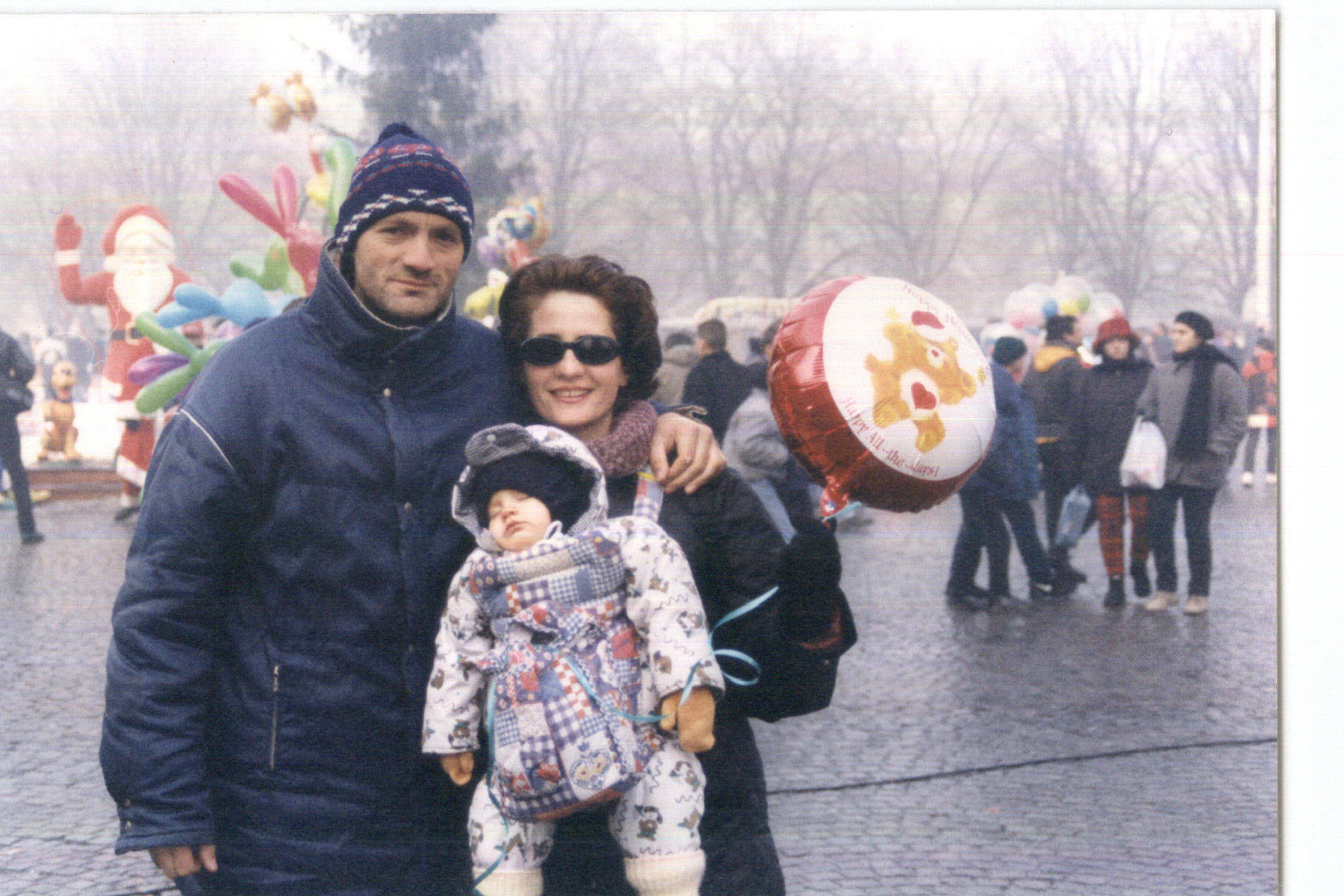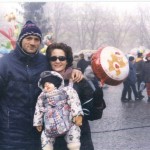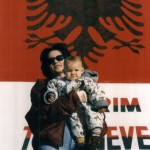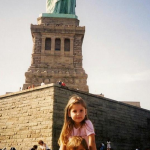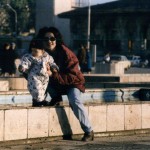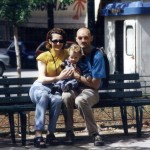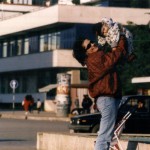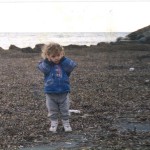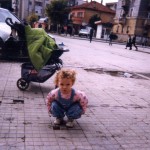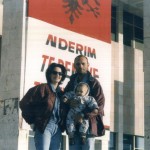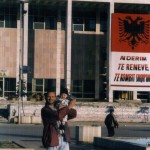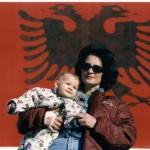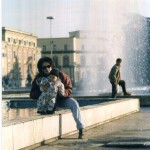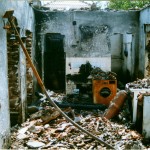By STEPHANIE LANDIS
Fleeing with young children across the world to escape from war and ethnic cleansing to an unknown country is a life changing experience.
Junior Dora Muratovic and her family were forced out by Serbians during ethnic cleansing in Kosovo on April 2, 1999. Before coming to the United States, her family became refugees in the neighboring country of Macedonia for two months. Muratovic was almost 3 years old when she left, her now freshman brother, Noli Muratovic, was 9 months old.
“[The experience of having] to leave the country as a refugee was something that I never thought would happen to me. It was hard losing everything, traveling with two little kids who had no idea what was going on and being afraid for our lives. I wouldn’t want anyone in the world to go through that,” Muratovic’s mother, Irfet Nimani, said.
Sophomore Elena Berisha permanently moved to the U.S. when she was 5 years old after her grandfather won the Customs lottery. Berisha’s family moved to Detroit, Michigan, and six months later they moved to Orlando.
“I remember telling my dad that I had to go to an Albanian school but they didn’t tell me that there were none [around Conway]. They had wanted to put me in the ESOL program to [help me] learn English, but two months after school started, my kindergarten teacher at Conway Elementary said she’d teach me, and I just had to learn on my own,” Berisha said.
Muratovic’s grandparents, aunts, uncles and cousins still live in Kosovo. Her only extended family in the United States is an aunt and uncle on her mother’s side. Berisha’s grandparents and aunt from her mother’s side continued living in Detroit. Besides an uncle on her mother’s side living in Norway, the rest of her extended family lives in Kosovo.
Muratovic last visited Kosovo in 2011 and the family would like to return soon. But busy schedules have kept them from travelling
“We visit every now and then and it’s weird because your cousins are taller than you, [but when you] last visited they were [shorter],” Muratovic said.
In 2010, the summer before Berisha’s seventh grade year, the family visited Kosovo. Their next trip is planned for this December.
As a young child, she visited the U.S before permanently moving. Through her five visits between Kosovo and the U.S., Berisha has noticed obvious differences in social status.
“It’s gotten so much better [in Kosovo] but men always [had more rights]. Here [women] can do whatever they want and not get shut down,” Berisha said.
During the last visit to Kosovo, Muratovic was able to notice the differences in the daily lives she and her cousins lead.
“You don’t have to drive as much because [everything is] so close. Kids are more independent; they don’t rely on their parents to take them everywhere,” Muratovic said.
Kosovo’s culture and their native language is still important to Berisha’s family.
“We are not allowed to speak English at home. So we maintain the [Albanian language] by speaking, reading and writing,” Berisha said.
As a mother, Nimani sees the U.S. as a way to give her children opportunities they did not have in Kosovo.
“Once the war in Kosovo ended we had the chance to move back. As a parent, I wanted my kids to have opportunities that I did not have, so we chose to live in this country that we [love] and that welcomed us when we needed help,” Nimani said.
Berisha’s family felt that Kosovo was no longer safe for them and accepted a green card from Berisha’s grandfather. According to Berisha, it is harder in Kosovo for citizens to move forward in their careers and social classes.
“The opportunities here are so much more [available]. That’s one of the reasons they moved. I can be anything I want to be. Here everything is much more stable. [In Kosovo] you fend for yourself and try to survive,” Berisha said.
